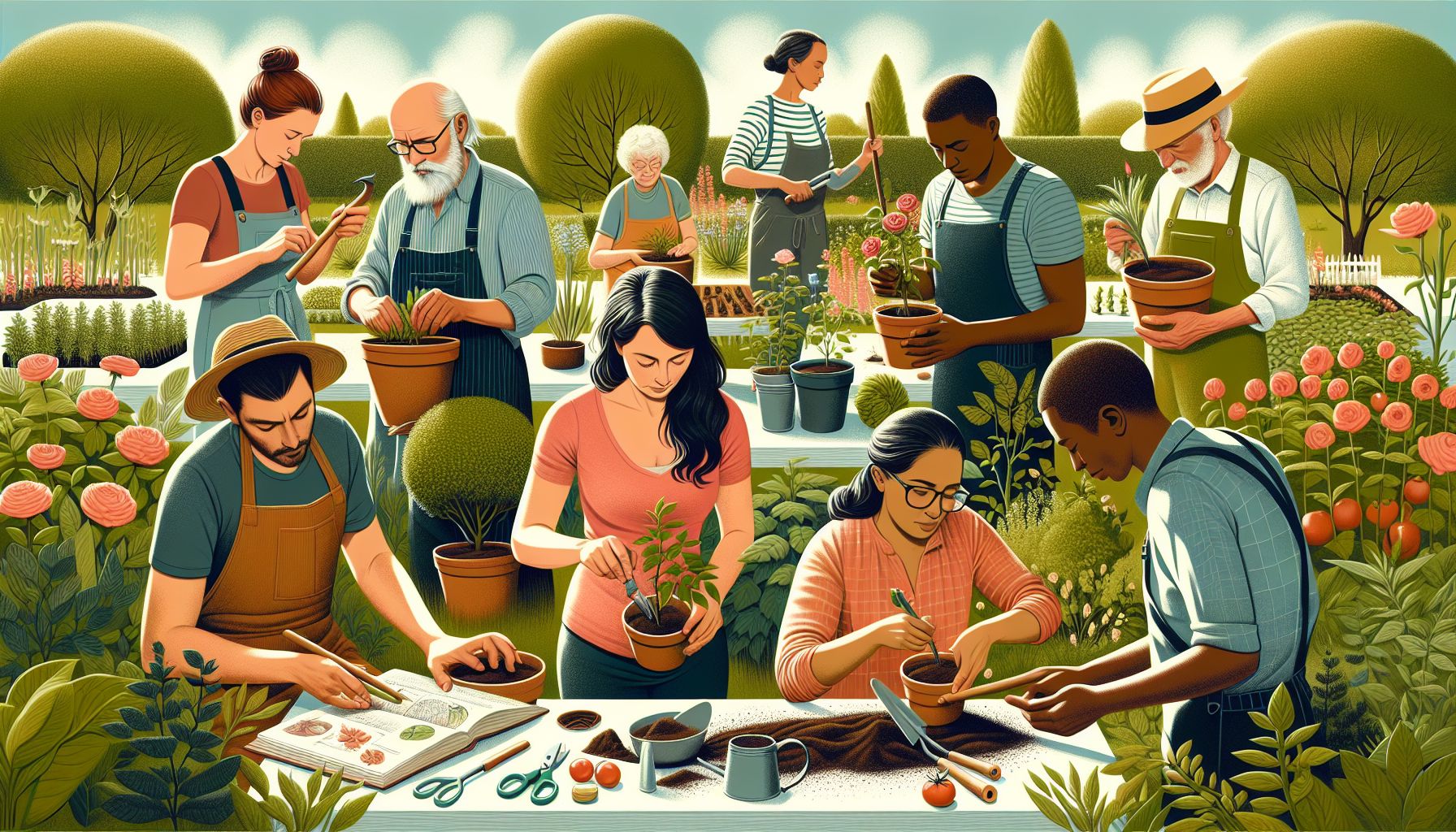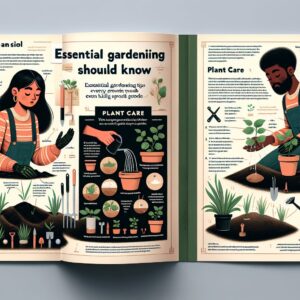Gardening – a hobby that sooths the soul and brightens the surroundings. Whether you’re an urban dweller with a green thumb or a professional landscaper tending to vast acres, gardening allows the love for nature to manifest in countless ways. If you’re passionate about gardening, our tips and ideas will help you nurture healthier, more vibrant green spaces.
Understanding the Basics
Before delving into complex gardening procedures, it’s crucial to understand your plants and their needs. The success of your garden mostly depends on the type of plants, their specific requirements, and your local climate. Most plants thrive in loamy, well-draining soil and 6-8 hours of daily sunlight. Acquaint yourself with these factors and choose your plants appropriately.
Garden Planning and Layout
Effective garden planning is a blend of aesthetic considerations and practical requirements. Consider the available space, sun’s trajectory, your plants’ needs, and the visual appeal of your garden while designing your layout. It’s especially important in urban gardening, where space limitations demand creative solutions, such as vertical gardens or container gardening.
Prepare Your Soil
Good soil is the bedrock of a thriving garden. Whether you’re dealing with sandy, clayey, or loamy soil, improving your garden soil’s texture, pH level, and nutrient content is crucial. Regularly add organic matter like compost or manure to enrich the soil and enhance its water retention capability.
Water Wisely
Never underestimate the power of apt watering. Too little and your plants die of thirst – too much, and they drown. Most plants prefer their soil moderately moist, but remember, watering requirements can vary widely among different plant species.
Keep an Eye on Pests and Diseases
Staying vigilant is key to preventing pests and diseases. Many gardening problems start small and spiral out of control if not checked promptly. Regularly inspect your garden for signs of pests and diseases, and take necessary action immediately.
Pruning and Deadheading
Trim your plants regularly to keep them in good shape and promote growth. For flowering plants, deadheading or removing spent flowers will stimulate more blooms. However, understand the right time and proper way to prune different plants to avoid causing harm.
Go Organic
Organic gardening ensures that your garden is safe from harmful chemicals. It involves natural methods of pest control, fertilization, and weed management. Besides, it’s environmentally friendly and enhances the soil’s health in the long run.
Rotate Your Crops
If you’re growing vegetables or fruits, crop rotation is a must. It prevents nutrient depletion in the soil and breaks pest and disease cycles, thus promoting a healthier garden.
Companion Planting
Another useful gardening practice is companion planting, which involves growing plants together that benefit each other. Some plants repel pests that harm their companions, while others attract beneficial insects.
Utilize Technology
Gardening in the digital age has its perks. Several gardening apps provide guidance on plant care, pest identification, and landscape design. They can be useful for both professional landscapers and urban gardeners with limited space.
Continuous Learning
Gardening is a lifelong learning process. The more you garden, the more you learn. Regularly seek new gardening ideas, attend workshops, and join local gardening clubs to enhance your gardening expertise.
In conclusion, whether you’re into urban gardening or manage a large professional garden, these tips will surely enhance your gardening experience. Happy gardening!
Note: Remember, while these gardening tips apply to a wide range of plants and environments, exact requirements may vary. Always research the specific needs of your plants and consult a local gardening expert when in doubt.




